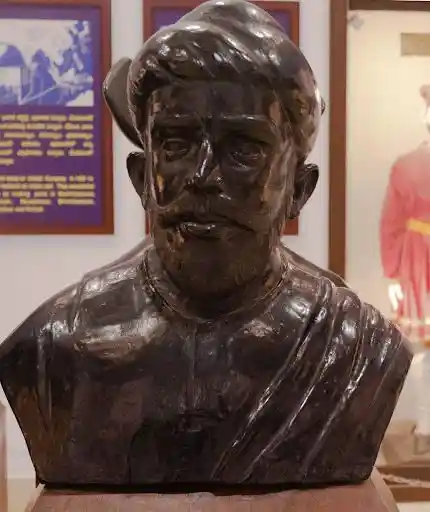Meet the Marakkars, the ‘Lord of the Seas’
Etymologically, the word ‘Marakkar’ has an Arabic root, ‘Markab’, meaning ship. It is believed that when the Marakkar clan reached the shores of India, they were asked who they were and they pointed towards their ships. Hence, the natives living on the Indian subcontinent called them Marakkayar, or people from Markab.

Kunjali Marakkar III. Image Source: Wikimedia Commons
Kunjali Marakkars were Mappila* Muslims (the community of Muslims who travelled from another land to Malabar and lived along the coast, taking part in trade) who were the naval chieftains and the admirals of the Zamorins. They fought relentlessly against the forceful invasions and unwanted monopolising powers of the Portuguese during the 16th century. Their effort didn’t go unnoticed — even today, they are regarded as a community of freedom fighters in Kerala’s history. However, for the Portuguese, they were nothing more than a group of pirates who looted and destroyed their ships.
Before the Portuguese showed interest in the Indian Ocean, trade was free and peaceful. Anyone interested in Indian commodities could come up to the market and buy them at the market price. However, things changed once the Portuguese were riled up with the thought of gaining a monopoly over the trade in the Indian Ocean. Anyone who challenged this power was subjected to barbaric attacks and were branded as pirates. That is exactly what happened with the Marrakars.
For centuries, there were various pirate and merchant families on the Indian coast that traded extensively with other kingdoms. However, during the 16th and 17th centuries, a lot of merchant families were thrown from their trade by the Portuguese and were forced to take up the occupation of pirates to eliminate this new power that was taking away their mode of survival. While the Marrakars were labelled as the pirates of the Indian Ocean by the Portuguese, they had legitimate power given to them by the Zamorin of Calicut. They ensured a smooth trade with various partners and were involved in the multiple facets of state building.
Interestingly, before treating the Marakkars as their nemesis, the Portuguese themselves were involved in a trade relationship with this community. Chinna Marakkar and Mamale Marakkar helped the Portuguese get spices from Malacca and other Southeast Asian countries. Nono Marakkar and Mitos Marakkar too ensured a profitable trade for the Portuguese in the 16th century. However, their relationship changed when the Portuguese started favouring the casados (Casados refer to men who married women of Indian origin) over them, deteriorating the relationship between the Muslims and the Portuguese. This led to the strengthening of the bond between the Indian Muslim trading communities and the West Asian Muslim countries.
The Marakkars, one of the most powerful trading communities in the South, saw their power dwindle in Cochin as the Portuguese started to develop a serious relationship with the king of Cochin. This eventually led them to shift their work to Calicut, where they worked directly for the Zamorin.
The Zamorin took advantage of this deteriorating relationship between the Marrakars and the king of Cochin and fueled this conflict to ensure that the Marakkars worked diligently to secure the trade routes of the Calicut. The Zamorin even gave the title of Kunjali (‘dearest’) to the Marrakars.
With the Zamorin’s enemies rising in number, the Marakkars were given the responsibility to maintain vigil and secure the ports of Calicut. To ensure a motivated approach to securing these ports, the Zamorin converted two members of every family into ‘Thura Marakkars’. They were allowed to build their own fort (Marakkar Kotta or the Fort of Kunjale), handle the port's operations as per their will, and ensure that trade was carried out seamlessly with various partners. They even called themselves the ‘Lords of the Seas’.
This abundance of power initially worked out very well for the Zamorin. However, insecurity and a threat to his authority took over him. The slow rise of the status and power of the Kunjali threatened the Zamorin. Now, rather than seeing them as allies and supporters against the Portuguese, they were considered a threat to the rule of Zamorin itself.
What did the Zamorin do to ensure his authority remains in place? He shook hands with the Portuguese to eliminate the community of Marakkars altogether. After all, the enemy of your enemy becomes your best friend.


